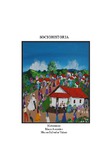Mostrar el registro sencillo del ítem
La etnografía en la investigación cualitativa
| dc.rights.license | http://creativecommons.org/licenses/by-nc-sa/3.0/ve/ | es_VE |
| dc.contributor.author | Paredes Villegas, Gustavo Adolfo | |
| dc.contributor.editor | SaberULA | |
| dc.date.accessioned | 2021-08-02T15:15:40Z | |
| dc.date.available | 2021-08-02T15:15:40Z | |
| dc.date.issued | 2021-08-02 | |
| dc.identifier.uri | http://www.saber.ula.ve/handle/123456789/47598 | |
| dc.description.abstract | En el siguiente artículo se hace una disertación sobre la etnografía como modelo de investigación, que a diferencia de la visión tradicional se concibe no sólo como método sino también como enfoque y texto. Lo que ha permitido que la etnografía traspase las fronteras de la antropología y cobre importancia en las investigaciones sociales de corte cualitativo llevadas a cabo por diferentes disciplinas como la sociología o la educación entre otras. Vista las cosas así, en la actualidad, la investigación etnográfica se caracteriza por una manera de concebir la naturaleza de la realidad estudiada desde un enfoque interpretativo, un método para aproximarse a dicha realidad a partir del trabajo de campo y el uso de técnicas como la observación participante y la entrevista no estructurada en profundidad y por último, un producto textual en el que se articulan las visiones del grupo estudiado, la del investigador y la de los autores que sirvieron de base para la realización de las interpretaciones teóricas. En términos generales, estos tres componentes están enlazados a lo largo del proceso de investigación, haciendo de la etnografía un modelo integrativo. | es_VE |
| dc.language.iso | es | es_VE |
| dc.publisher | SaberULA | es_VE |
| dc.rights | info:eu-repo/semantics/openAccess | es_VE |
| dc.subject | Etnografía | es_VE |
| dc.subject | Trabajo de campo | es_VE |
| dc.subject | Observación participante | es_VE |
| dc.subject | Entrevista no estructurada en profundidad y textualización | es_VE |
| dc.title | La etnografía en la investigación cualitativa | es_VE |
| dc.title.alternative | Ethnography in qualitative researche | es_VE |
| dc.type | info:eu-repo/semantics/article | es_VE |
| dcterms.dateAccepted | 16/10/2018 | |
| dcterms.dateSubmitted | 08/08/2018 | |
| dc.description.abstract1 | The following article provides a dissertation on ethnography as a research model, which unlike traditional vision, is conceived not only as a method but also as a focus and text. That has allowed ethnography to cross anthropological frontiers and to get importance in social research of qualitative carried out by different disciplines such as sociology or education among others. Taking this into consideration, at present, ethnographic research is characterized by a way of conceiving the nature of reality studied from an interpretative approach, a method to approach that reality from field work and the use of techniques such as participant observation and the unstructured interview in depth and finally, a textual product in which are articulated the visions of the studied group, that of the researcher and the authors who served as the basis for the realization of the theoretical interpretations presented in the results of the investigation. In general terms, these three components are articulated throughout the research process, making ethnography an integrative model. | es_VE |
| dc.description.colacion | 131-157 | es_VE |
| dc.description.email | gustavoapv76@gmail.com | es_VE |
| dc.description.frecuencia | Semestral | |
| dc.description.paginaweb | www.saber.ula.ve/agora | |
| dc.identifier.depositolegal | pp199802ME291 | |
| dc.identifier.edepositolegal | ppi 201202ME4022 | |
| dc.publisher.pais | Venezuela | es_VE |
| dc.subject.institucion | Universidad de Los Andes | es_VE |
| dc.subject.keywords | Ethnography | es_VE |
| dc.subject.keywords | Field work | es_VE |
| dc.subject.keywords | Participant observation | es_VE |
| dc.subject.keywords | Unstructured interview in depth and textualization | es_VE |
| dc.subject.seccion | Agora Trujillo: Artículos | es_VE |
| dc.subject.tipo | Artículos | es_VE |
| dc.type.media | Texto | es_VE |
Ficheros en el ítem
Este ítem aparece en la(s) siguiente(s) colección(ones)
-
Agora Trujillo - Año 021- Nº 041
Enero-Diciembre 2018


